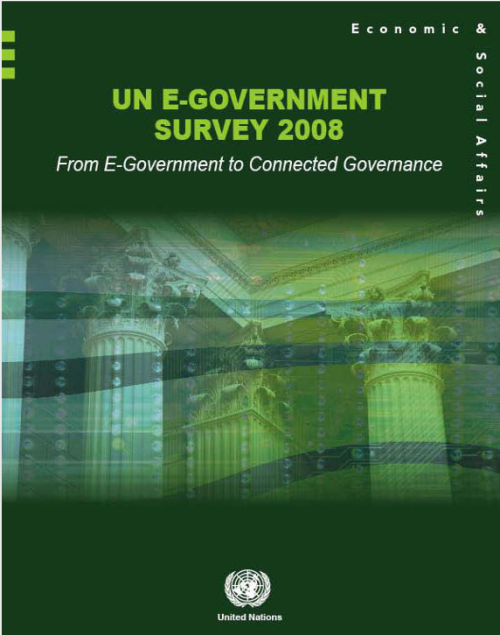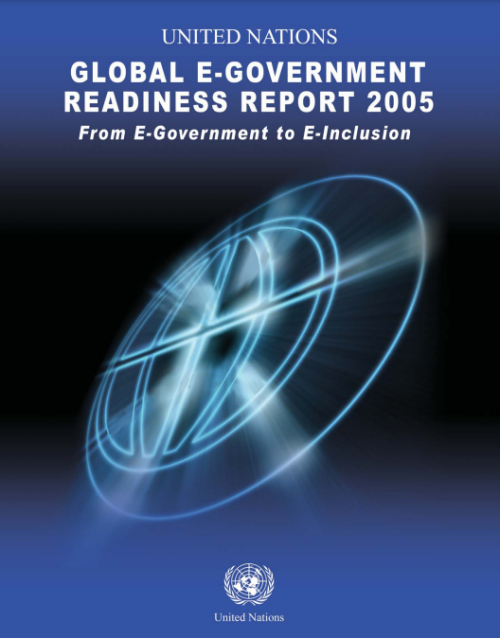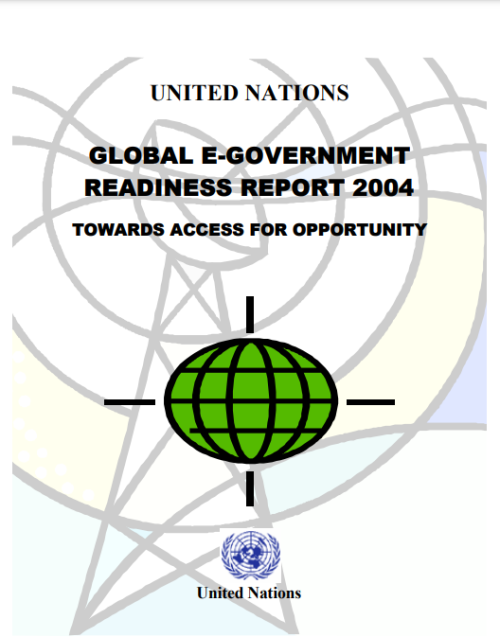Publications
“The increasing role of e-government in promoting inclusive and participatory development has gone hand-in-hand with the growing demands for transparency and accountability in all regions of the world,” said Sha Zukang, UN DESA Under-Secretary-General in the newly released United Nations E-government Survey 2012.
The survey, prepared by UN DESA’s Division for Public Administration and Development Management, assesses Member States’ government web portals with a focus on the provision of e-information and e-services; these services include interactive, transactional, and e-participation features that connect governments and citizens.
Member States are ranked in accordance…
The Demographic Yearbook 2009-2010 is the sixty-first in a series published by the United Nations since 1948. It contains tables including a world summary of selected demographic statistics, statistics on the size, distribution and trends in national populations, fertility, foetal mortality, infant and maternal mortality, general mortality, nuptiality and divorce. Data are shown by urban/rural residence, as available. In addition, the volume provides Technical Notes, a synoptic table, a historical index and a listing of the issues of the Demographic Yearbook published to date.
The number of deaths of children under the age of five declined from 12.4 million in 1990 to 8.1 million in 2009, which means nearly 12,000 fewer children die each day. Some of the world’s poorest countries have also made impressive gains in the fight against poverty, but the least developed countries still lag in efforts to improve living standards.
The world continues to make advances towards the Millennium Development Goals (MDGs), despite the global economic downturn, but the rate of improvement remains too slow and countries must step up their efforts if the MDGs are to be achieved by their target date of 2015, a new United Nations report says. The annual assessment report, released today by Secretary-General Ban Ki-moon, shows that the world has made huge strides in reducing extreme poverty...
The 2010 United Nations e-Government Survey: Leveraging e-government at a time of financial and economic crisis was completed in December 2009 and launched in early 2010. The report presented various roles for e-government in addressing the ongoing world financial and economic crisis. The public trust that is gained through transparency can be further enhanced through the free sharing of government data based on open standards.
The United Nations Statistical Yearbook is an annual compilation of a wide range of international economic, social and environmental statistics for over 200 countries and areas of the world, compiled from sources including UN agencies and other international, national and specialized organizations. The fifty-second issue contains data available to the Statistics Division as of June 2008 and presents them in 68 tables on topics including: agriculture; balance of payments; communication; development assistance; education; energy; environment; finance and gender.
The Supplement covers a number of topics deemed to be beneficial to trade data compilers, including an overview of compiling practices, the revised International convention on the simplification and harmonization of customs procedures (revised Kyoto Convention), the 2007 edition of the Harmonized Commodity Description and Coding System, specific compilation issues such as goods for processing and re-exports and an overview of the differences between IMTS and general merchandise.
The Millennium Development Goals report presents a yearly assessment of global progress towards achieving the MDGs. It is prepared by the Statistics Division at DESA on the basis of input provided by the members of the Inter-agency and Expert Group on MDG Indicators. Less than six years away from the 2015 deadline to achieve the MDGs, this report warns that despite many successes, overall progress has been...
This report presents an assessment of progress, based on data available as of June 2008 on all official Millennium Development Goals (MDG) indicators, including the new ones introduced. The aggregate figures in the report provide an overall assessment of regional progress under the eight goals and are a convenient way to track advances over time.

The UN E-Government Survey 2008: From E-Government to Connected Governance assesses the E-Government Development of the 192 Member States of the UN according to a quantitative composite index of e-readiness based on website assessment, telecommunication infrastructure, and human resource endowment. ICTs can help reinvent government in such a way that existing institutional arrangements can be restructured and new innovative arrangements can flourish, paving the way for a transformed government.
The focus of the report this year, in Part II, is e-government initiatives directed at improving operational efficiency through the integration of back-office functions. Whilst such…

The spread of information technologies to a select group of people in the world is worsening disparities between the e-haves and the e-have-nots. There is a danger that unequal diffusion of technology, far from fomenting cohesion by providing opportunity, will result in reinforcing the traditional patterns of economic and social inequalities which will lead to a weakening of social bonds and cultural organization.
Exploring the interlinkages between e-government and human development, Part II of the UN Global E-Government Development Report 2005 points to the need to place development thinking within what it terms as the Socially Inclusive…

Economic and social empowerment today rests on the ability to access, gather, analyze and utilize information and knowledge to widen individual choices for political, economic, social, cultural and behavioral decisions. ICTs are the conduits which transmit information and knowledge. By integrating technology into development planning, more effective and speedy solutions can be found for economic growth and sustainable human development. However, the reality is that access to - and the distribution of - the tools for knowledge and wealth creation are highly unequal both among, and between, countries of the world. The disparities in access to ICT-related…
 Welcome to the United Nations
Welcome to the United Nations